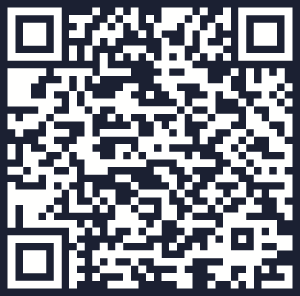Where the magic happens
The working groups are one of the core elements of Bundesblock to promote blockchain technology. In these groups, industry experts deal with different sub-areas of the blockchain ecosystem and formulate policy recommendations.
These include statements, position papers, press releases, articles or Fact sheets. Some working groups also organise Events featuring industry experts.
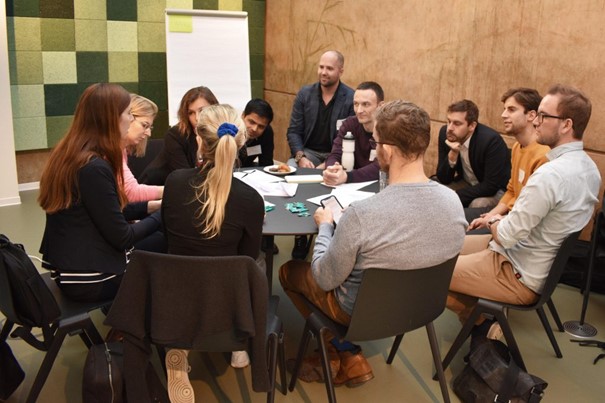
You would like to join a working group?
We are open to all interested parties. Participation is voluntary, but offers the chance to work with other industry experts and possibly even support to shape legislation.
The working groups meet regularly (online) to work on regulatory topics of the subfield. The prerequisite is an interest in the respective topic; previous legal experience is desirable but not mandatory. Usually, the working groups are German-speaking.
If you want to find out more about the Bundesblock and the work of the working groups, join our Slack channel and introduce yourself in the #workgroups channel.
Organisations on the Blockchain? DAOs (Decentralised Autonomous Organizations) are one of the potentially disruptive phenomena that web3 brings forth. The DAO working group at Bundesblock deals with legal issues of this new form of organisation.
Together, the participants want to find out what the development of a solid DAO ecosystem and the establishment of DAOs on an equal footing with other forms of organisation could look like, or a competitive regulatory framework for DAOs in Germany as well as Europe.
- Supporting the DAO ecosystem
- Communication with politics and stakeholders
- Establish a uniform basic understanding of a DAO
- Addressing the legal challenges of DAOs in Germany
Group lead: Robert Müller and Jan-Gero Alexander Hannemann
The digital euro will fundamentally change the financial world. The ECB is working hard on a retail CBDC, the digital euro, to provide citizens with central bank money in digital form.
But only if it is properly designed and, in particular, uses the advantages of blockchain technology, can it also bring added value for users. The working group was launched to help the ECB and the Eurosystem decide on the technology on which the digital euro should be built.
- What is a Digital Euro, why is it important and what is the current status?
- What impact would a digital euro have on society?
- What advantages would a digital euro have over cash or other digital means of payment?
- Advantages of blockchain technology for the digital euro
- Connection to DLT processes (Industry 4.0)
Group lead: Sarah Rentschler-Gerloff and Sandro Potenza
Positionspapier zum digitalen Euro 08.05.2023
Position Paper Digital Euro 08.05.2023 (English version)
2. Positionspapier: Wie die Blockchain-Technologie den Euro digitalisiert 25.07.2023
2. Position Paper (English version)
Stellungnahme BMF, Entwurf einer Verordnung über die Einführung eines digitalen Euro 14.08.2023
Focus Paper: How Blockchain Technology will
Digitize the Euro 8/17/2023
Focus Paper: How Blockchain Technology will Digitize the Euro (English version)
Status quo zum digitalen Euro 20.06.2024
"Digital identities" are a big topic, especially in the blockchain context. That is why a separate working group is dealing with "Self-Sovereign Identity" (SSI).
The WG explores the question of how digital identities, privacy and data protection can lay the foundations for a functioning ecosystem with automated processes.
Tamper-proof identities for people, companies, things and processes will become the backbone of an existing web2 and the nucleus of the new WEB3. The SSI WG discusses requirements and approaches and works on an overview of current work on the topic of "Digital Identities".
- EIDAS 2.0
- Data Protection & Blockchain, Legal Considerations & DSGVO
- Identity for Supply Chain / IOT
- Identities for securing data
- Technology concepts, EBSI/ESSIF, TFR
Group lead: Oliver Naegele
The "Education" working group is dedicated to promoting the understanding and application of blockchain technologies in science, politics and industry associations.
The aim is to establish an interdisciplinary network of different interest groups that promotes the exchange of knowledge, increases social understanding of the technology and contributes to enriching the educational landscape with regard to blockchain technology. In order to close the gap between theory and practice and fully utilise the potential of this technology, the following topics are being addressed:
- Development of an educational objective
- Definition of relevant target groups
- Identification of potential educational gaps
- Development and implementation of educational concepts
Group lead: Khaled Azizi and Thomas Blank
The working group "Finance" deals with current legal, technical and financial developments in connection with blockchain technology, DLTs, DAGs and DAOs and their influence on a strongly IoT-based Industry 4.0 and the financial sector.
Among other things, the questions of how the current technical developments are to be classified legally and whether and to what extent there is a need for change will be examined.
A current focus of the work is, among other things, investment DAOs or questions as to how far crypto protocols and crypto assets should be regulated on the financial market or how the fusion of, for example, the old economy with a tokenised Web 3.0 DeFi (Decentralised Finance) economy can succeed. To this end, we regularly contribute to (scientific) statements and submissions for e.g. the German Bundestag, BaFin and other regulatory institutions.
Group lead: Jan-Gero Alexander Hannemann and Zsófia Vig
Digitalised property rights in the form of non-fungible tokens (NFTs) and the development towards metaverse are central growth drivers of the new digital world. At the same time, a variety of questions are currently arising, especially with regard to NFT projects.
The WG pursues the primary goal of developing information bases for policy makers and initiators of NFT projects. This should reduce uncertainties and strengthen Germany as a crypto/NFT location.
- Development of a system for token classification
- Collection and preparation of current NFT use cases
- Preparation of a guide for the establishment of NFT projects
Group lead: Florian Zeiser and Daud Zulfacar
The WG deals with the clarification of any tax-relevant, especially technical, issues. The aim is to highlight differences that could make a difference to taxation.
- Critical and constructive engagement with legislative initiatives and with the views of the executive, such as those expressed in so-called BMF letters.
- Practicability considerations of various measures: The respective facts are to be discussed with professionals (StB and RA) with regard to income tax, inheritance tax/gift tax and turnover tax.
Group lead: Oliver Christian Schroen
Aktionspapier Bundesblock Steuern.pdf
Aktionspapier Steuern Update 30.09.2020.pdf
Aktionspapier Steuern Update 30.09.2020 -1.pdf
Supply chains are an integral part of international merchandise management. Especially because of the procedural – i.e. successive – process steps in the supply and procurement, distributed ledger technology is an ideal way to meet current challenges.
The Supply Chain AG is dedicated to the identification of supply chain solutions based on blockchain and deals with questions regarding the practical suitability and thus the practical limits of blockchain-based software for recording and processing supply chains.
Together, the participants want to find out not only which providers are predominant on the market, but also which of the providers can provide tax-relevant data points that can be used for reporting, cross-company data analyses and also auditability by the tax authorities. Topics such as data protection and necessary technical certifications will be discussed with experts.
- Identification of supply chain solutions
- Practical suitability
- Security
- Traceability of data
- Data exchange between supply chain participants
- Availability and auditability of tax-relevant data
Group lead: Daniel Heinen
Treasury 4.0: Programmierbares Geld, Stablecoins und Blockchain-basierte Cash-Management-Lösungen
Die Arbeitsgruppe Treasury untersucht die Anwendungsmöglichkeiten der Blockchain-Technologie im Bereich Treasury, mit einem besonderen Fokus auf programmierbares Geld und Stablecoins. Ziel ist es, die Effizienz, Transparenz und Sicherheit in der Unternehmensfinanzierung und Liquiditätssteuerung zu steigern. Durch die Integration digitaler Technologien sollen innovative Cash-Management-Strategien, wie Blockchain-basiertes Cash Pooling, entwickelt und praxisnah erprobt werden.
Fokus der Arbeitsgruppe:
- digitale Währungen wie Kryptowährungen, Stablecoins , CBDCs und CBMT in Bezug auf Treasury- und Liquiditätsmanagement
- Blockchain-basierte Cash-Management-Lösungen
- Effiziente, transparente und sichere Treasury-Strategien
- Kapitalbeschaffung mit tokensierten Vermögenswerten
- Integration in vorhandene Treasury- und Liquiditätsmanagement-Systeme
Group lead: Sarah Rentschler-Gerloff
The WG is working on the changes in research and science brought about by blockchain technology, decentralisation and open science.
- Decentralisation of research (for example the publication process)
- Structural and social sustainability of blockchain technology (decentralisation and open science)
Group lead: Bence Lukács and Benjamin Heurich
What our working group leads say
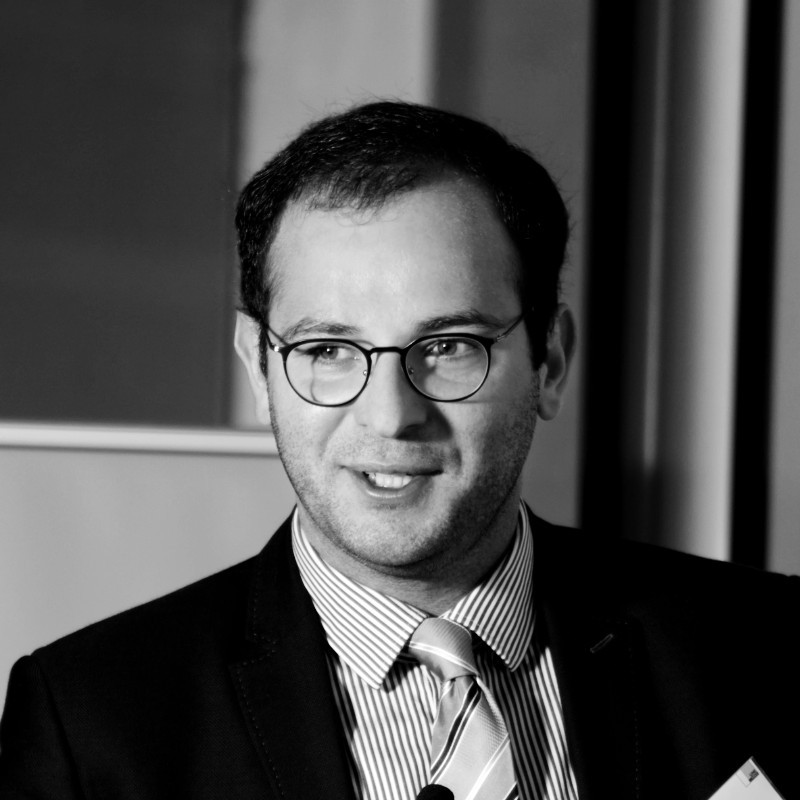
Decentralised Autonomous Organisation are an alternative hierarchy-free form of organisation that are suitable for a future decentralised economy. Europe and Germany must recognise that the developments can no longer be stopped and that a suitable regulatory framework open to innovation must be established. This is what we are working for in the WG-DAO.

The WG Science has set itself the goal of investigating blockchain technology from the perspective of the entire scientific community, from social sciences to natural sciences, and to accompany future social developments accordingly on the basis of the scientific method.
I am also participating in the AG because I am convinced that we can support the development of the German-speaking blockchain community with a scientific approach.
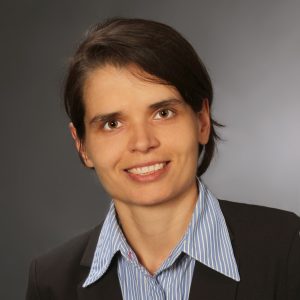
The working group " Finance" deals with current legal, technical and financial developments in connection with blockchain technology, DLTs, DAGs and DAOs and their influence on the financial industry. I participate in the WG primarily because it gives me the opportunity to contribute both my professional experience in the financial industry and my interest in new technologies.

NFTs enable the simple digital mapping of property, while the move towards the metaverse and increasing digitisation opens up new forms of exchange and meaning of digital ownership. We are convinced that these technologies will become significantly more important in the coming years and will become an integral, no longer visible, part of our everyday lives.
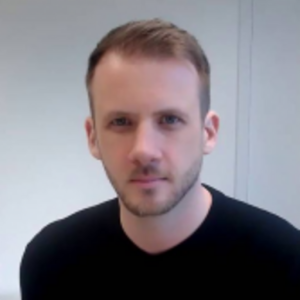
The paradigm of decentralisation opens up new, challenging avenues for science. Rigid adherence to the scientific method is of central importance, especially in these turbulent times. In the WG Science we discuss approaches and sharpen the view for sustainability and robustness of interdisciplinary work in the field of DeSci.

Our interdisciplinary NFT & Metaverse working group identifies emerging use cases and develops innovative classification and systematisation approaches. Interested in joining us? Contact us! We look forward to shaping the future together and promoting the spread of blockchain technology in Germany.

The digital euro is a crucial step towards a digitised society and economy. With it, we can not only carry out transactions faster and more efficiently, but also drive innovations such as the Internet of Things and the sharing economy. The introduction of a CBDC offers the chance to make payments safer and more stable and to open up new possibilities for monetary policy making. It is an important step towards a digital future in which the opportunities and challenges of digitalisation in the financial sector can be mastered. With our digital euro working group, we are playing a decisive role in shaping the future of our monetary policy.
You have a topic that no working group is dealing with yet?
We form the working groups according to participant demand and current topics. In this respect, the working groups are to be understood as a dynamic format. If there are a few people interested in a new topic, we will be happy to set up a new group. Please join our Slack channel and present your request.

